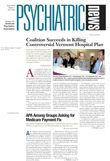Was Sir Arthur Conan Doyle right after all? Can you literally be scared to death? The notion that it is possible for a terrifying event to trigger a fatal heart attack appears in the Sherlock Holmes story “The Hound of the Baskervilles,” when Charles Baskerville has a fatal heart attack after being frightened by a hound dog.
Now in a case of the truth being as strange as fiction, University of California at San Diego sociologist David P. Phillips, Ph.D., and colleagues found that cardiac mortality does increase on psychologically stressful occasions such as “unlucky days.”
The Number 4
For many Chinese and Japanese, “unlucky days” are those that include the number 4, which in Mandarin, Cantonese, and Japanese is pronounced almost the same as the word “death.” This fear produces anxiety, discomfort, and apprehension in some people.
The prevalence of this superstition can be seen throughout China and Japan, where 4 is not used when numbering the floors or rooms in hospitals and hotels, just as the 13th floor is sometimes omitted in some Western hotels. Some Japanese avoid traveling on the fourth day of the month, and some Chinese patients are fearful of this date.
To study the effects of this psychological stress on cardiac mortality, Phillips and coworkers compared the death certificates of 209,908 Chinese and Japanese people in the United States with those of 47,000 Caucasians of European descent, matching deaths for Caucasian controls with deaths of the Chinese and Japanese subjects, using state and cause of death, inpatient status, age, sex, and marital status. Deaths peaked on the fourth day of the month for the Chinese and Japanese subjects, with a 13 percent increase over what would normally be expected. Caucasian controls showed no peak.
“At present the only explanation consistent with the findings is that psychological stress linked to the number 4 elicits additional deaths among Chinese and Japanese patients,” Phillips said.
The researchers were careful to control for other possible explanations for their findings, such as seasonal differences or effects of certain holidays on diet.
Stanford psychiatrist David Spiegel, M.D., called the findings “interesting and provocative.” He is widely known for his research indicating that cancer patients who have a strong support network of friends and family live longer than cancer patients who do not.
Mind Affects Mortality
“It was shown that the mind, especially in its appraisal of risk and of the social environment, affects mortality. It is not an all-or-none phenomenon, but the perception of bad luck, a good holiday, or a birthday may shift the odds of dying at that particular time,” said Spiegel, a professor and associate chair of psychiatry and behavioral sciences. Phillips, who dubbed this phenomenon the Baskerville effect, wrote in the December 22-29 issue of the British Medical Journal that “Conan Doyle was not only a great writer but a remarkable, intuitive physician as well.”
In an e-mail response in the same journal, Stephen J. Palmer, director of the Centre for Stress Management in London, wrote: “Perhaps the most important issue to be raised by these findings is that health practitioners may need to take beliefs and superstitions into account when treating patients.”
He said that if the findings are accurate, they probably do not surprise anybody, because any member of the general public would be likely to say “Of course, unlucky days are stressful.”
